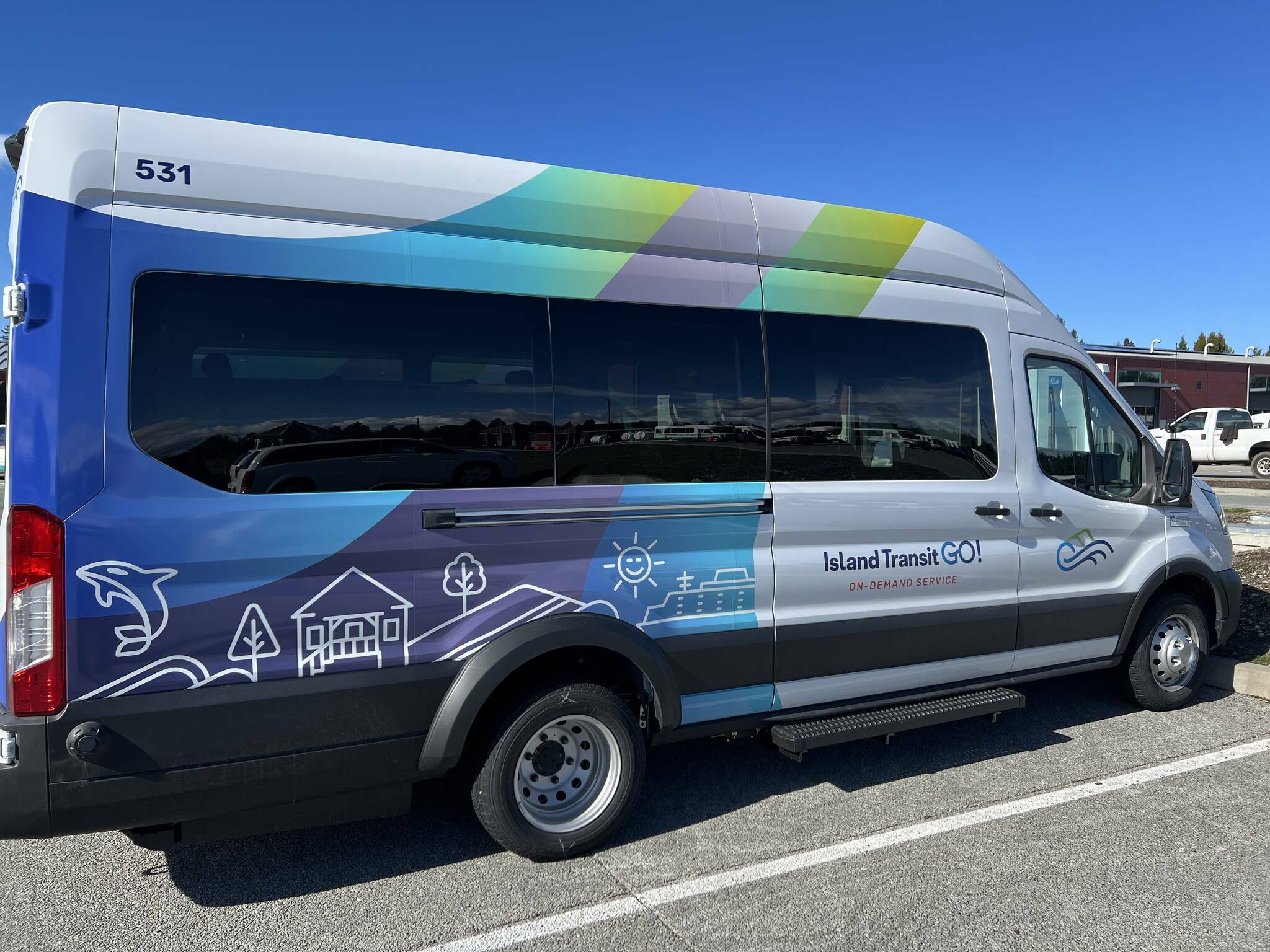Island Transit board members continue to reevaluate routes and other operations in the wake of their decision to fire the executive director.
The board members decided to forego the dedicated park route as the agency struggles with bus operator staffing. At the same time, they are hoping to keep the new Sunday service.
In addition, the board decided not to move forward with plans to buy more electric vans as the performance of the current two electric vans was lackluster. Craig Cyr, a Langley council member who is interim executive director, said the leaders still hope to move toward a zero-emission fleet in the future, but he acknowledged the timeline may have to be adjusted.
The board members fired the executive director a couple of weeks ago over concerns about secretive raises for several top administrators. They had placed the Human Resources director on administrative leave the the same week, and she remains on leave.
The board named Cyr as the interim executive director and Island County Commissioner Melanie Bacon as the interim HR director. They said they are working to calm turmoil in the ranks of the agency while the board searches for a new executive director. The board plans to bring in a firm to analyze the working environment; the board previously hired a firm to look into specific workplace complaints.
Island Transit is an independent agency with a board of elected officials from other agencies. It is made up of six people — three Island County commissioners and council members from Oak Harbor, Langley and Coupeville.
Cyr explained that the seasonal park route, which runs between the Coupeville ferry dock and Fort Ebey State Park, was a pet project of the former director, but the ridership was extremely low. Last Sunday, only two people rode the route during an eight-hour period.
He said staffing the parks route meant that the agency has fewer operators for core services. A lack of available operators has led to cancellations of key routes in the past, which is a situation the board is trying to avoid.
“In the end, it was an easy decision to re-allocate drivers to higher utilized routes such as our core #1 route between Clinton and Oak Harbor which has seen several runs canceled,” Cyr said. “Other adjustments are under consideration as the Island Transit board matches available driver resources with a route schedule Island Transit can fully support. In this way, we are ‘right sizing’ Island Transit.”
The parks route will end in early July.
Cyr noted that Sunday service has consistently been the most requested service expansion.
“We will do everything we can to maintain it, but only if the demand is there that can be served by our current driver corps,” he said.
Cyr said the agency is looking at ways to recruit additional bus operators as the current staff members have been working long hours.
Cyr said the decision not to buy additional electric-powered vans is not a result of the leadership change but is a concern the board had been looking into earlier. Island Transit had planned on buying 11 electric vans to support para-transit and on-demand services. The agency received the first two in February.
Cyr explained that it is a best practice for an agency to first purchase just one or two of new types of vehicles for the fleet to see how they perform before committing to more. In this case, the performance was wanting.
Bacon said the manufacturer had promised that the vans would run 200 miles on a charge, but it turned out to be less than half of that. In addition, she said the agency doesn’t have the infrastructure yet for a fleet of electric vehicles.
Island Transit currently has two hybrid buses but no fully electric ones. Cyr said the agency leaders’ plan is to move the hydrogen-powered buses in the future, but there are currently restraints on the technology.
Island Transit plans to eliminate all carbon emissions by 2035.



